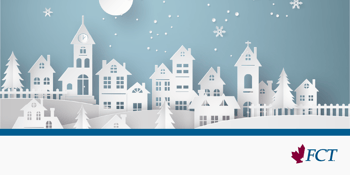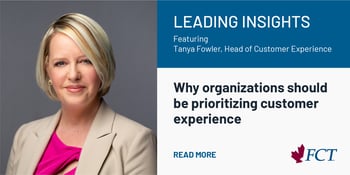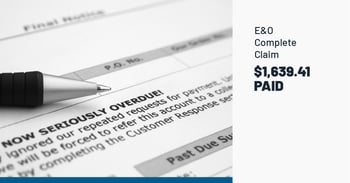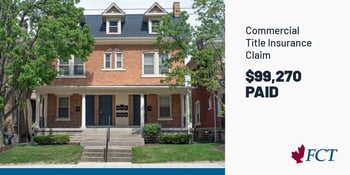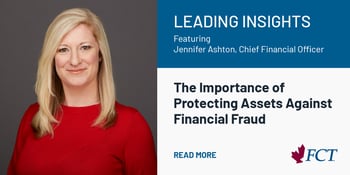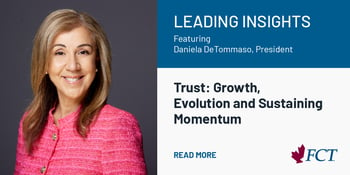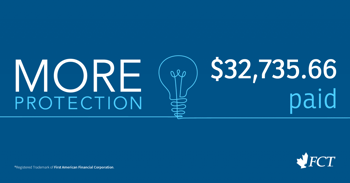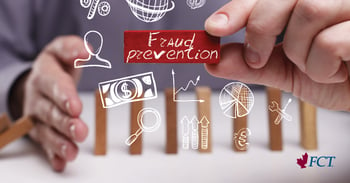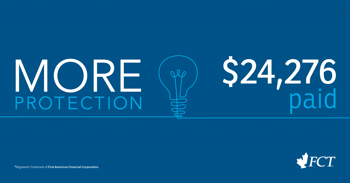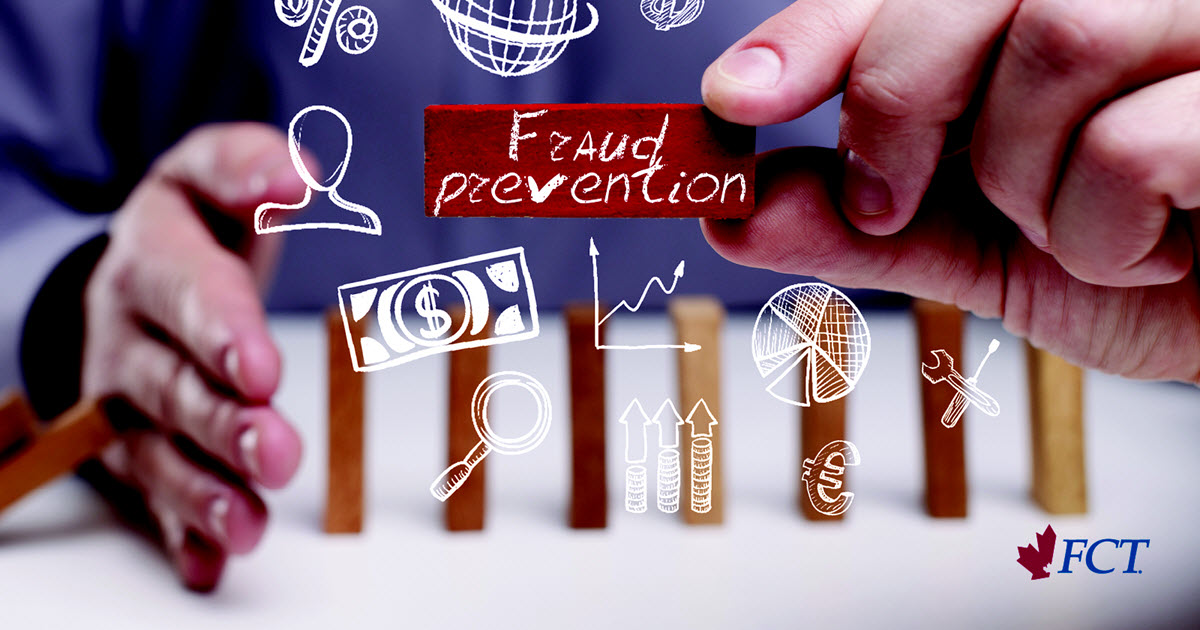
Canadians are more concerned about fraud today than they were 5 years ago. The reason? Fraudsters are finding increasingly sophisticated methods to get around safeguards.
The continual move to a more digital landscape has increased the frequency of mortgage and title fraud within the Real Estate Industry. So how can businesses or individuals combat this offensive?
At FCT, we have the great advantage of having a fraud examiner on staff. Marie Taylor is an integral part of FCT and has been for almost eighteen years. She is a Certified Fraud Examiner of the South Western Ontario Chapter of the Association of Certified Fraud Examiners (the world’s largest anti-fraud organization and the premier provider of anti-fraud training and education), and a sought-after subject matter expert specializing in residential title insurance and the effects of fraud on the title insurance industry.
We recently had the opportunity to ask Marie some important questions about real estate fraud—how to recognize them, how to safeguard against them and what to do if you are ever a victim of fraud.
What are the main types of fraud to watch for in real estate?
The three main frauds in real estate are title fraud, foreclosure fraud and mortgage fraud.
Title fraud occurs when the title to your home is stolen and used by the thief to sell the home or apply for a mortgage against it. It often comes on the heels of identity theft.
Foreclosure fraud – usually happens as a result of the homeowner not being able to make their mortgage payments. They are tricked into transferring the title to the fraudster in order to get a loan to make the payment only to have the fraudster keep the payments–plus they now have the title to the home which they can resell or remortgage.
Mortgage fraud – Typically occurs between the bank and the notary via the broker when misleading information regarding employment, income, down payment, etc., is communicated to the bank in order to secure a mortgage that would otherwise not be granted.
What steps can homeowners take to guard against these types of frauds?
- Protect your mortgage information in a secure place. Don’t just throw old information in the trash, shred it.
- If you’re having trouble making your mortgage payments, contact your mortgage lender first before going to alternative sources for payment.
- Speak with a lawyer before giving anyone the right to deal with your assets.
- Do your research before approaching any company for a loan.
- Conduct a title search with the appropriate governmental agency to determine if any liens or mortgages are registered on the title.
- Think about getting title insurance to protect yourself against title fraud.
What should you do if you become a victim of fraud?
If you suspect that you may be a victim of real estate fraud, you should take the following steps immediately:
- Make note of the date you first noticed the fraud and your actions directly following (names of anyone you may have contacted about your suspicions).
- Contact your local police station to report your suspicions and file a report.
- Contact your bank or any other financial institutions that you think may be affected.
- Contact your land registry office.
- Reach out to a credit rating agency like TransUnion and/or Equifax, and request that they place a fraud alert on your file.
- Contact the Canadian Anti-Fraud Centre.
As always, the best way to protect yourself from real estate or any other fraud is to be hyper-vigilant and as much as you can, verify the identity of anyone with whom you are sharing your personal information.







































